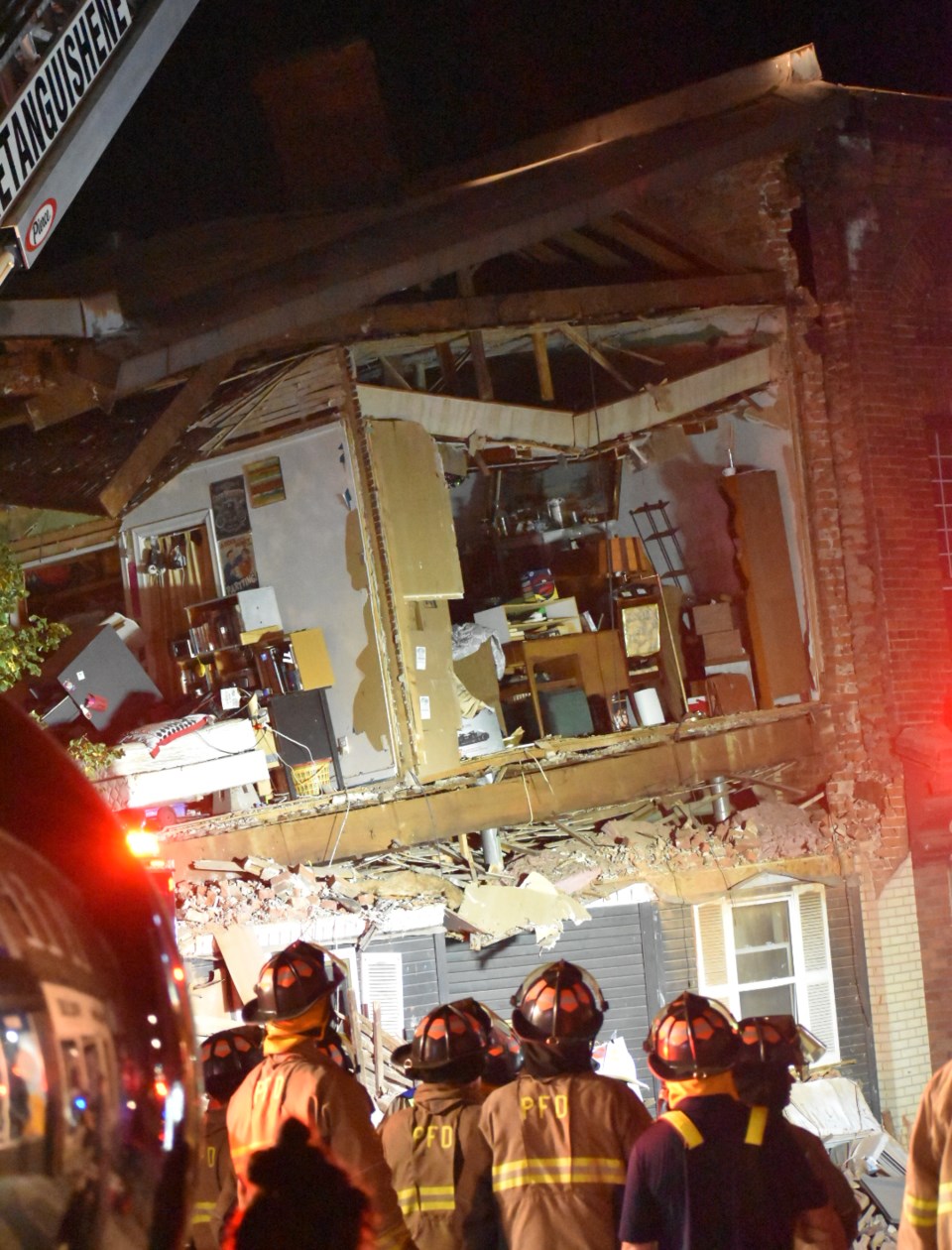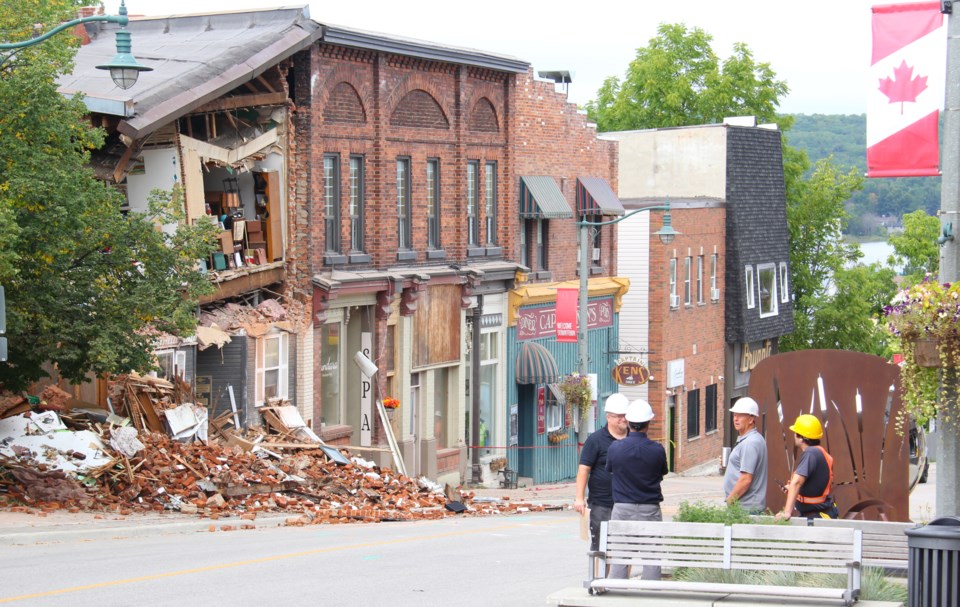When a more than century-old building collapsed in downtown Penetanguishene late last week, Barrie firefighters also raced to the scene to provide some of their specialized training for incidents like this.
The Main Street building was being demolished on Monday following a collapse early Thursday morning. Two walls of the building, located at 78 Main St., gave way around 3 a.m., Sept. 7.
Early that morning, a crew from Barrie Fire and Emergency Service raced to Penetanguishene, about 45 minutes north of the city. Two apparatus fire trucks, a technical rescue truck, a pump truck, along with eight firefighters and two senior officers, rushed to the area to assist local crews already on the scene.

Barrie Fire provides technical rescue services through a contract with Penetanguishene and Midland fire departments.
“We have a service contract with them to provide rescue services that include high-angle, confined space and trench,” Barrie Fire Chief Cory Mainprize said.
“Some of those disciplines carry over into assisting them with a collapse. That’s a specialized discipline, which is technically a collapse rescue, and isn’t a service that we provide, but we do have some crossover training and some staffing with additional expertise, which is why we deployed our technical rescue group, because they didn’t know exactly if there were going to be people in a confined space,” he added.
Mainprize said Barrie Fire has some "shoring capabilities" to help stabilize a building.
"That’s what the premise was when we responded to Penetang to help them out," he said.
It turned out no one was trapped in the rubble and no one suffered serious injuries.
“We ended up doing some recon work, just to help them out,” Mainprize said. “We had our crews enter and search some of the basement, what we would consider to be a survivable space.
“Some of the building was completely collapsed, so there was no urgent need to search it. We had our crews enter from the building next door as the basements are adjoined," the chief added. "They were in a still-safe space, just to do some recon to make sure there was no one trapped.”
Because no one was injured, it went from an emergency situation to a stabilization situation very quickly, he said.
“There weren't a lot of challenges as no one was hurt,” Mainprize added.
One person in a second-floor apartment was shaken out of his bed by the collapse, and fell to the ground below. He did not suffer serious injuries.
“I’m amazed. A guy literally fell out onto the street. He showed us where he landed, where the blanket he was in was on the top of the pile of bricks," Mainprize said. "(It’s) an absolute miracle no was hurt or worse, killed.”
Building construction is a significant part of urban fire training and recognizing the type of construction that they are dealing with, Mainprize said.
“When those places were built many, many years ago, from a fire safety standpoint, they put notches in the floors, so if there’s a fire in one building and a floor collapsed, it didn’t take the building next to it,” he said.
“We saw that as soon as we were there — it’s pretty neat. It was different engineering more than 140 years ago, but it was very effective at the time, so some of that built-in engineering actually saved the building next to it,” Mainprize added. “Those older type buildings, with the double-brick outside walls, are very, very heavy, and they present some hazards that we need to be aware of, with just the sheer weight of all that masonry.
“They are very strong vertically, but as soon as something happens, they catastrophically fail."
